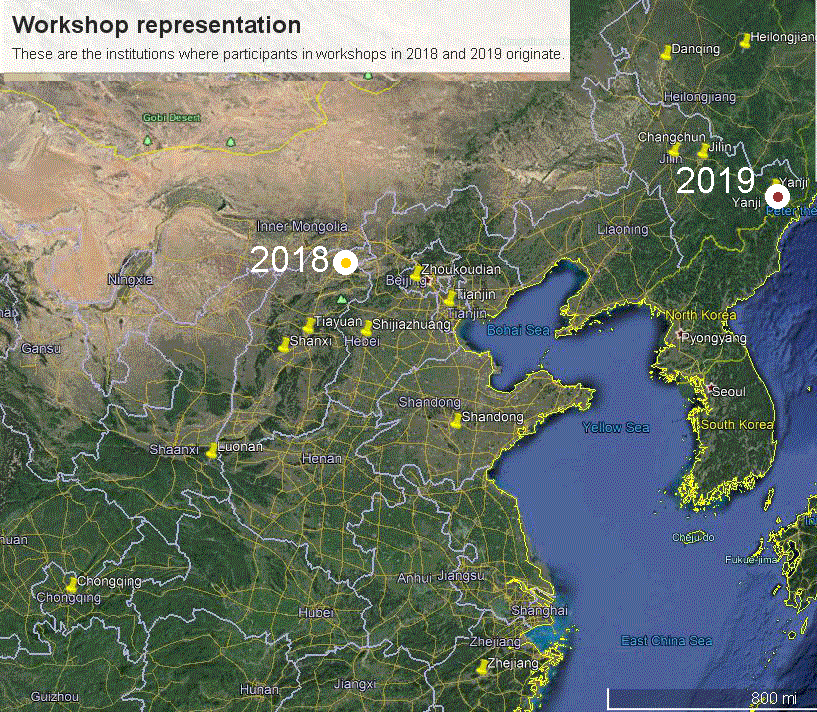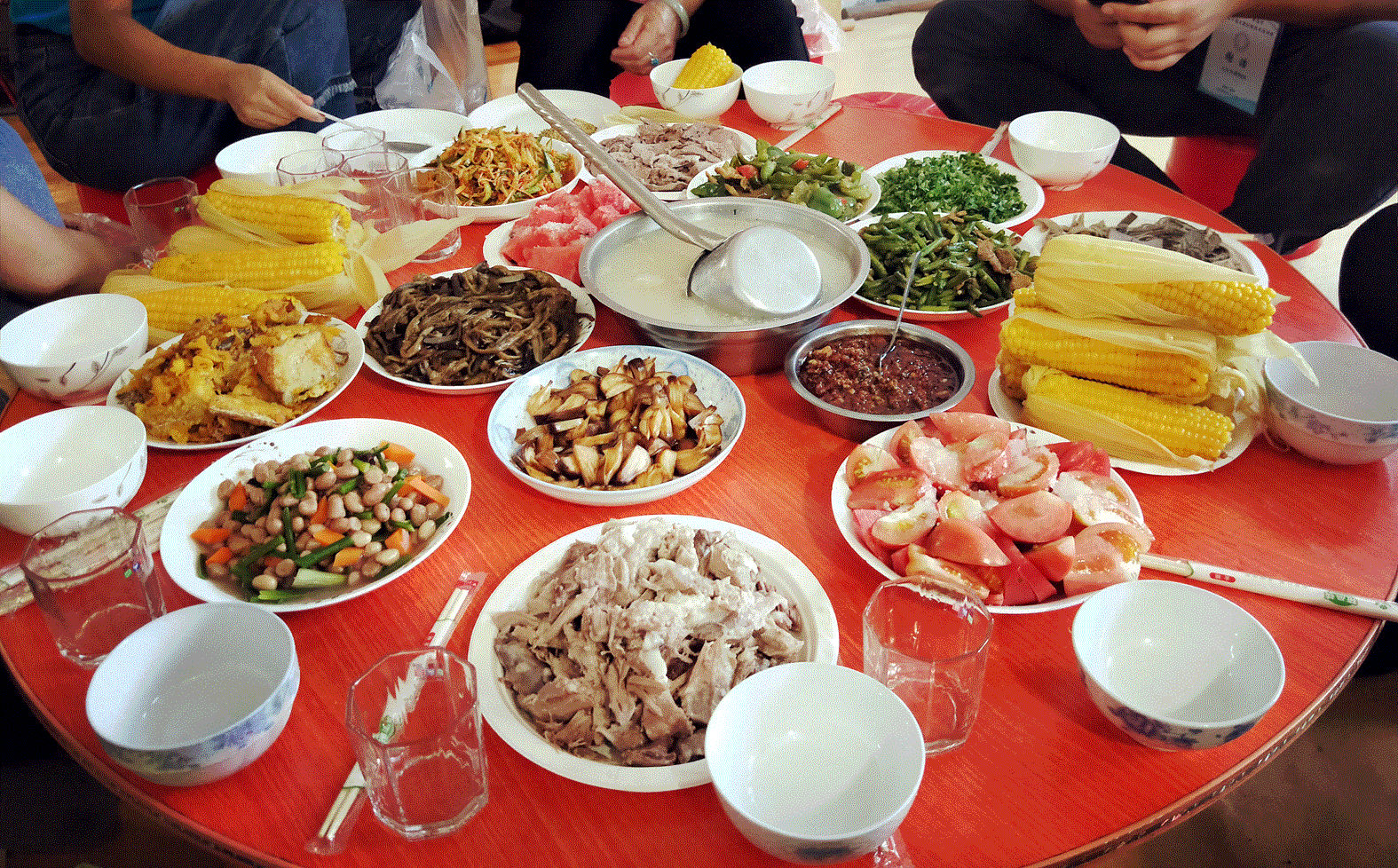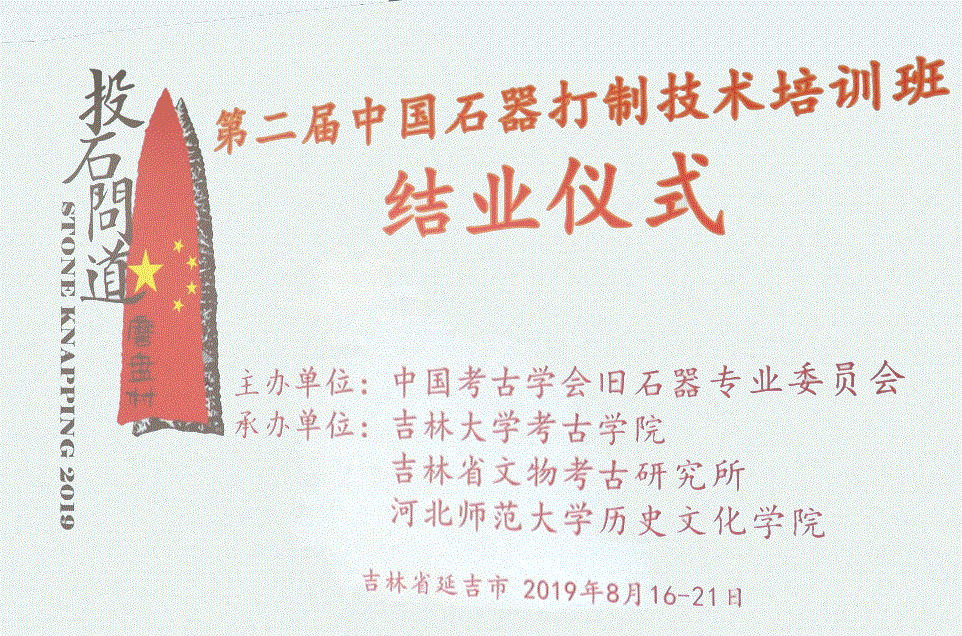
Site is in development off and on. Link buttons with white backgrounds haven't been completed. Colored buttons should work. Please let me know if you encounter a broken link. Comments and suggestions welcome
As with last year's workshop this one was sponsored by the Institute of Vertebrate Paleontology and Paleoanthropology and Peking University; but also Jilin University. Many colleagues and students were involved with organizing the workshop, providing transport and basically taking care of me, for which I am grateful. Special thanks to Hailong Zhou, Feng Li, Xing Gao and Quanjia Chen. Popular Archaeology article (in Chinese).
I arrived in Beijing and was taken to the Zhokoutian site southwest of the city to participate in the 3rd Palaeolithic Festival of China. My participation was mainly a knapping demonstration in which I was joined by several Chinese knappers. There was of course an opening ceremony with speeches by various dignitaries etc.

Participants in the 3rd Palaeolithic Festival

Opening ceremony slide
Zhoukoudian is a UNESCO recognized world heritage site and it has been developed for visitation, including a modern museum. All of the activities a were being recorded, I believe for television. After the speeches, a a choreographed performance and several presentations, we had a site tour during which Prof. Gao and I were interviewed. We then went to the site museum, a state of the art facility. We were housed in a nearby amazing venue- the Tian Yu Mountain Village- a replica German mountain village.

My second knapping workshop in China took place outside of Yanji, a city in the Yanbian Korean Autonomous Prefecture, less than 20 miles from the North Korean border. Most of us stayed in a nice hotel in the city but the workshop venue was in a small farming community in a valley about 5 miles away.
Most of us commuted to and from the venue.




Participants in both workshops were drawn from institutions across China, indicated by the yellow pins.

There were 15 official participants in the workshop but several observers and quite a few support staff, including villagers. Breakfast was in the hotel but lunches were mainly prepared and served at the venue as were several evening meals.



